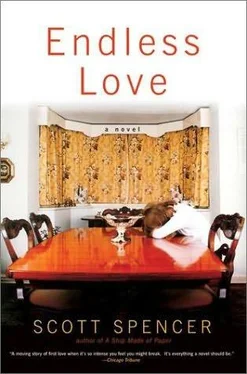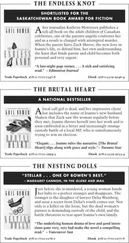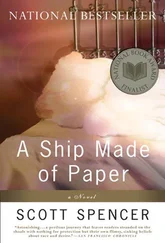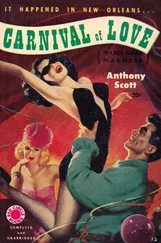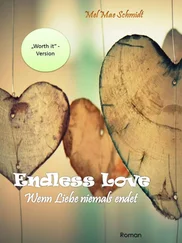I didn’t want to say good night; the word would draw the curtain on the evening. “Sleep deeply,” I said. I was surprised to hear myself say that, disconcerted. Sleep deeply? A reasonable phrase but foreign to me. And seeming to hold within it—now that I thought about it—some lascivious little worm. Sleep deeply and I’ll undress you without your knowing it.
I could sense Jade musing, wondering if there was something more she could say. I thought I heard her lips part; she shifted in bed as if preparing to speak. But then, quite suddenly, I felt her intelligence leave the room like a cat out of the window. She was asleep. The air conditioning hummed louder, making Jade’s breaths inaudible. More of my backbone was touching the floor now and I began to relax into a heavy, sullen sleeplessness. She’d left me with shocking abruptness and I would have liked to chase after her in sleep. But I seemed bound to wakefulness and what I had to do was decide what kind of insomnia it would be: a vacant, open-eyed cousin to sleep or a clumsy, distorted version of waking. It was a question of coming forward and making the most of it or lagging back as close to the border of sleep as I could, hoping to accidentally fall in.
My thoughts raged. I experienced myself as if I were living before the invention of language. Emotions spurted up but I couldn’t name them and without a name they couldn’t be modified or controlled. Emotions presented themselves as colors, as spasms, indecipherable voices: if I’d lived at an earlier time, I would have thought I was possessed; I would have strained to decode the instructions of my surging blood, just as ancient warriors bent their ears toward white rivers to learn their orders.
I sat up and wrapped my arms around my knees. My breath felt strained, as if the familiar passageways had been removed and replaced by bright aluminum tubing, perfectly unobstructed but a little too small. Clear thought returned in the form of lavish self-pity. I thought, Here she is after so much time and here I am on the floor. It felt as if this night—with the dawn already sailing in over the Atlantic—would be our only time together, my last chance. That I had read it wrong. Some daring had been required of me and I hadn’t figured it out. A lunge. Or perhaps strategy. Flirtation, accusation, cartwheels of wit. My opinions on death. The last role I wanted was that of the woeful tenor standing on the apron of a dark, empty stage, clutching at the brocade of his antique costume.
I wanted to stand up, walk to the bedside, and gaze at her sleeping face. But what if she awakened? A scream of fright? Or perhaps she’d grab me and pull me on top of her.
My desire was heavy, feverish. I knew if I wasn’t careful I would elevate my instincts, appoint them to the command.
People make fun of Catholics for confessing to impure thoughts but my own thoughts, reflecting my overcooked passions, were worth confessing to. I would have liked to neatly categorize them into Sin, to gather them in like that and hand them over to someone else. To be absolved. A father confessor.
I had none, of course. The closest I came to a spiritual life was the worship of the very feelings that plagued me now, that closed in on me the way the body does when your temperature is soaring.
Confession. The word stood up in my consciousness, like a monster, a ghost, and every other thought shrank back. Then slowly this one puzzling, unfamiliar word stripped itself down, casting off layers of meaning and association, all the moldy trappings that made it an idea, reflex, a duty. And the more the word confession divested itself of familiar meanings, the larger and brighter it stood within me. I felt I was being told to do something I had no idea how to begin. I couldn’t even tell if my impulse to submit myself to the blind ritual of confession was evidence that somehow in the middle of all this I had taken a turn and wanted to be a different sort of person, or if it meant something much less important—a need to relieve the intense moral pressure, a way of talking myself out from beneath the rock that sat on my chest. Confession as negotiation; confession as show of good faith. Even the Communists had a form of it. They called it self-criticism. You discussed your mistakes and promised your friends you’d do better. They looked at you unpleasantly but forgave you—unless you really fucked up, in which case you were out. My father told me he never went in for self- criticism; he assumed his ideological shortcomings were discussed behind his back anyway. But Rose watched her politics like a sentinel, to the point where her detailed, minute self- criticisms became an expected part of every meeting and came close to becoming a kind of joke. (Rose confessing to white chauvinism and proving her point by reporting she’d given her seat on the bus to a Negro woman who was younger than her.)
Why had my father bothered to tell me that my mother was so committed to the act of self-criticism? Had he wanted to warn me not to be fooled by her sometimes monolithic nature? To remember that behind her small, set face, with its deep stubborn grooves and injured eyes, was a self that never lost the habit of measuring and doubting itself. That she was a critic of others but tougher on herself, etc. Or was he inviting me to share his ironic perceptions of her? He seemed to be fooling with his image of her, just as children watching a color TV will fiddle with the controls when they become bored with the show, turning the faces vermilion, royal blue, orange.
Without a priest or any ceremonies, my own father was my last possible confessor—but what deliverance from sin could I expect from that burly, compulsively kind man? Speaking to him about myself was like falling onto a huge sack of oats, neither comforting nor hard. Arthur’s view of the world alternated between the grandiosely cosmic and the frigidly empty; either we lived in the warm pouch of a universe that loved us wholly and mysteriously or we were simply configurations of protein and water bubbling for an instant in the long curved beaker of time. In any case, judgment was impossible. The Butterfields were for you by examining and ordering your gestures, like cards in a game of solitaire. Arthur’s mode of acceptance was flamboyantly blind. He believed in my fate as a man of passion and principle and wasn’t concerned in amassing data for a proof.
A good boy! A fine son! Oh the joy! Every now and then he would stare at my face to see if I was beginning to look like him. I never came to resemble him but it was no cause for jealousy because I didn’t look like Rose either. “He looks like a Russian—but an aristocrat,” my father used to say of me. It was better, finally, that I resembled no one. He protected me from his fears of his own mediocrity and in the process withheld all of his majesty as well: the lump in his throat as he faced the scowling jury; the tears over the Rosenbergs; losing at poker with his new friends in the Army because they were destined to lives of manual labor. He considered himself corny, coarse, he was ignorant of the beginnings of his feelings and staggered beneath their weight when they were full grown. It was his wish that I not know him. He was someone to depend on, to take my nourishment from, someone to teach me language and rudimentary manners—the idea of fairness; the habits of pity. But not to know him: he quarantined me from his deepest self as if from a contagion, convincing himself that somehow he was a rooster who’d been given the responsibility of teaching a hawk how to fly.
He wanted to pass the torch—the torch of romance and heedlessness, the torch that could never ignite in his own hands. And when it was ablaze he shyly stole it back from me. He held it now, he displayed it like mating plumage before Barbara Sherwood, he waved it in Rose’s face and accused her of being afraid of it. How could I confess to him? The process of his blind love had been reversed: now at this relatively late stage he had finally seized upon the idea that he and I were the same sort of people, and since he had never been less capable of judging himself than he was now, I could certainly not expect anything but the most partisan view of me. Now that we had, in his mind, fused into one person and that person was the man he had always wanted to be, I operated with a moral blank check—my mere signature was good anywhere.
Читать дальше
